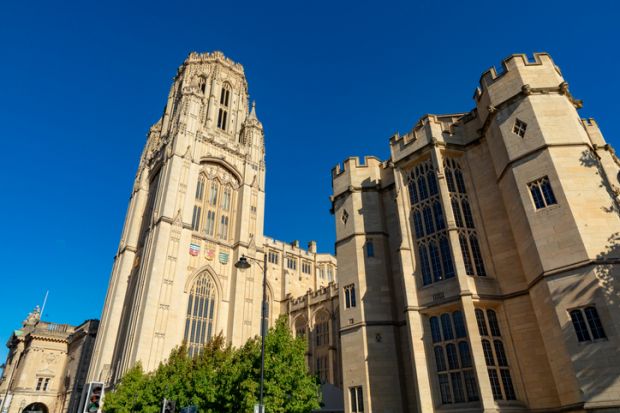The University of Bristol was wrong to sack a professor for gross misconduct after he expressed “anti-Zionist” views, an employment tribunal has ruled.
David Miller, who worked as a professor of political sociology at the institution from 2018 to 2021, argued his belief that Zionism is “inherently racist, imperialist, and colonial” was a protected characteristic under the Equality Act.
He won his claim for unfair dismissal and discrimination in what his lawyers described as a “landmark” case.
Professor Miller, who said his views were well known when he was first hired by Bristol, initially attracted complaints over a lecture he gave in March 2019 in which he listed Zionism as one of “five pillars” that drives Islamophobia in the UK.
The campaign group the Community Security Trust complained to the university, alleging Jewish students at the institution “were extremely upset by hearing and seeing what they felt to be an antisemitic lecture”.
Further complaints were made by students accusing Professor Miller of using “antisemitic language, tropes and conspiracy theories”.
Bristol initially dismissed the complaints and an independent report by Aileen McColgan KC also found there was no case to answer.
Professor Miller alleged he had been subject to an organised campaign by groups and individuals opposed to his anti-Zionist views, which was aimed at securing his dismissal, the tribunal heard.
In comment given to The Jewish Chronicle and The Tab, he accused Jewish societies at universities of being “constitutionally bound to promoting Israel and campaigns to silence critics of Zionism or the state of Israel” and said that Jewish students were “being used as political pawns by a violent, racist foreign regime engaged in ethnic cleansing”.
This prompted further complaints and another two investigations, with Bristol also beginning a disciplinary procedure which eventually concluded Professor Miller had breached its rules of conduct and other workplace policies and was guilty of gross misconduct.
But the tribunal found the university “acted unreasonably in treating the claimant’s conduct as a sufficient reason for dismissal” and the reason for dismissal was “tainted by discrimination”.
Reacting to the ruling, Professor Miller said he was “very proud” to have established anti-Zionist views as a protected belief which he said he hoped “will become a touchstone precedent”.
“The determination that I was sacked for my anti-Zionist views is a huge vindication of my case all the way through this process. The University of Bristol maintained that I was sacked because Zionist students were offended by my various remarks, but it was plain from the evidence of its own witnesses that this was untrue, and it was the anti-Zionist nature of my comments which was the decisive factor,” he added.
Zillur Rahman, a partner at the law firm Rahman Lowe who represented Professor Miller, said his client had been “vindicated” after being the subject of a “vicious campaign that was waged against him by Zionists within and outside the university”.
He said “maximum compensation” will be sought for the losses Professor Miller has experienced due to the impact on his career and the hurt he has experienced.
A University of Bristol spokesperson acknowledged the judgment but said it was “disappointed with its findings”.
They said the university had “concluded that Dr Miller did not meet the standards of behaviour we expect from our staff in relation to comments he made in February 2021 about students and student societies linked to the university” and “considering our responsibilities to our students and the wider university community, his employment was terminated”.
“We recognise that these matters have caused deep concern for many, and that members of our community hold very different views from one another,” the spokesperson added.
“We would, therefore, encourage everyone to respond in a responsible and sensitive way in the current climate. The University of Bristol remains committed to fostering a positive working and learning environment that enriches lives and where the essential principles of academic freedom are preserved.
“The university is reviewing the tribunal’s lengthy judgment carefully and in light of that review, it would not be appropriate to comment further.”
Register to continue
Why register?
- Registration is free and only takes a moment
- Once registered, you can read 3 articles a month
- Sign up for our newsletter
Subscribe
Or subscribe for unlimited access to:
- Unlimited access to news, views, insights & reviews
- Digital editions
- Digital access to THE’s university and college rankings analysis
Already registered or a current subscriber? Login










